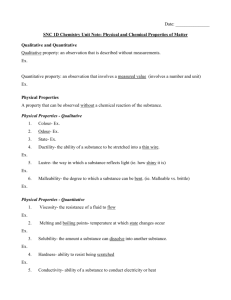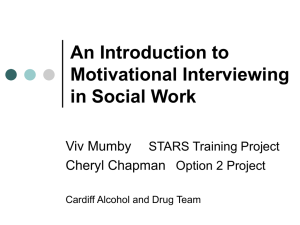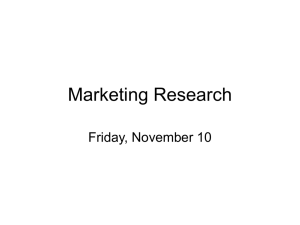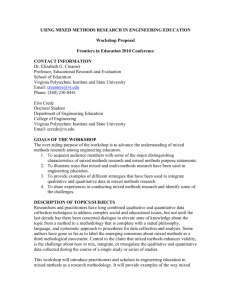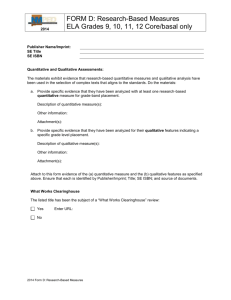SS400 - Activating your university user account
advertisement
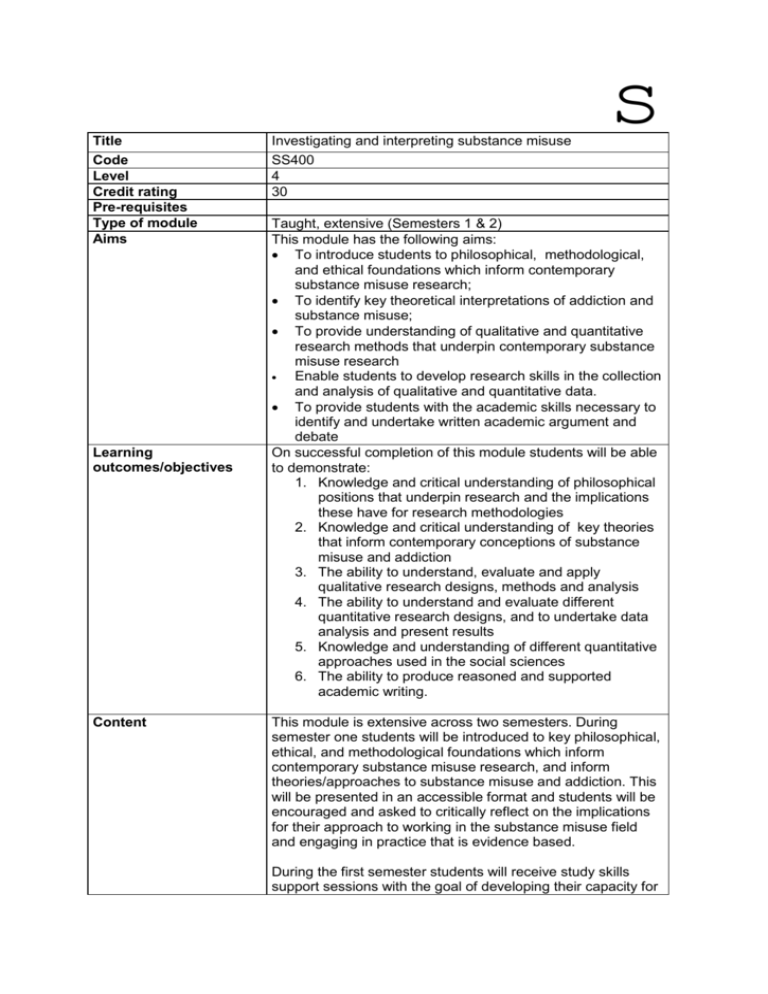
Title Code Level Credit rating Pre-requisites Type of module Aims Learning outcomes/objectives Content Investigating and interpreting substance misuse SS400 4 30 s Taught, extensive (Semesters 1 & 2) This module has the following aims: To introduce students to philosophical, methodological, and ethical foundations which inform contemporary substance misuse research; To identify key theoretical interpretations of addiction and substance misuse; To provide understanding of qualitative and quantitative research methods that underpin contemporary substance misuse research Enable students to develop research skills in the collection and analysis of qualitative and quantitative data. To provide students with the academic skills necessary to identify and undertake written academic argument and debate On successful completion of this module students will be able to demonstrate: 1. Knowledge and critical understanding of philosophical positions that underpin research and the implications these have for research methodologies 2. Knowledge and critical understanding of key theories that inform contemporary conceptions of substance misuse and addiction 3. The ability to understand, evaluate and apply qualitative research designs, methods and analysis 4. The ability to understand and evaluate different quantitative research designs, and to undertake data analysis and present results 5. Knowledge and understanding of different quantitative approaches used in the social sciences 6. The ability to produce reasoned and supported academic writing. This module is extensive across two semesters. During semester one students will be introduced to key philosophical, ethical, and methodological foundations which inform contemporary substance misuse research, and inform theories/approaches to substance misuse and addiction. This will be presented in an accessible format and students will be encouraged and asked to critically reflect on the implications for their approach to working in the substance misuse field and engaging in practice that is evidence based. During the first semester students will receive study skills support sessions with the goal of developing their capacity for self-directed learning and the production of academic writing. Teaching and learning strategies During semester two students will be introduced to core quantitative and qualitative methods that underpin contemporary substance misuse research. They will develop an understanding of research strategies and become familiar with qualitative and quantitative research analysis techniques; which will include the use of the Statistical Package for the Social Sciences (SPSS) Semester One: A programme of 2 hour, whole cohort, group sessions that will include lectures and seminar activities (24 hours in total), a programme of 1 hour, whole cohort, study support sessions (12 hours in total), and 114 hours of self-directed study as outlined in the module handbook. Semester Two: A programme of 24 hours direct teaching and 126 hours directed private study outlined in the module handbook. In both semesters students will be encouraged, by way of examples, to reflect upon the practical application of the academic ideas to the substance misuse field Learning support Key texts Bryman, A. 2008. Social Science Research Methods, third edition. Oxford: Oxford University Press. Gaarder, J. 1995. Sophie’s World: A Novel about the History of Philosophy. New York: Phoenix Supportive reading Chalmers, A. F. 1999. What is this thing called Science? (3rd Ed.) Buckingham: Open University Press. De Vaus D A. 1996. Surveys in social research. Sydney: Allen and Unwin. Gilbert N. ed. 1993. Researching social life. London: Sage. Oppenheim A. N.1992. Questionnaire design, interviewing and attitude measurement. London: Pinter. Pallant, J. 2010 SPSS survival manual: a step by step guide to data analysis using SPSS, 4th edit, Maidenhead: McGrawHill. Silverman, D. 2005. Doing qualitative research, second edition. London: Sage Smith, J. 1998. Social Science in Question. London: Sage The Statistical Package for the Social Sciences (SPSS) will be used for quantitative data analysis. Study skills texts Cottrell, S. 2008. The study skills handbook, 3rd ed. Basingstoke: Palgrave Macmillan. McMillan, K. and J. Weyers 2006 The smarter student: study skills and strategies for success at university, Harlow: Pearson. McMillan, K. and J. Weyers (2007) How to succeed in exams Assessment tasks and assignments. Harlow: Pearson McMillan, K. and J. Weyers (2007) How to write essays and assignments. Harlow: Pearson. Price, G. and P. Maier (2007) Effective study skills; unlock your potential Harlow: Pearson. Semester 1: Individual presentations, within small groups, on research articles which exemplify differing philosophical positions and theoretical interpretations within a contemporary substance misuse debate. (40%) (LO1, LO2) Semester 2: Individual presentations, within small groups, on the practical application of qualitative research methods (30%) – the exercise will demonstrate understanding of the principles of different data collection methods and the application of appropriate methods to analyse qualitative data (LO3) Quantitative written course work (max. 800 words) (20%) – assignment will assess understanding and evaluation of different quantitative research designs, the use of data analysis as well as presentation of results (LO4, LO6) Online multiple choice exam (10%) – exam will test students’ understanding of different quantitative approaches used in the social sciences, incorporating principles of the application of appropriate data collection methods (LO5) NB: All assessment tasks need to be passed to pass the module. Brief description of module content and/or aims (maximum 80 words) Area examination board to which module relates Module team/authors/ coordinator Semester offered, where appropriate Site where delivered Date of first approval Date of last revision Date of approval of this version Version number Replacement for previous module Field for which module This module first introduces students to the philosophical, methodological and ethical foundations that underpin contemporary interpretations of substance misuse and substance misuse inquiry. The module then introduces students to the range of methods used in the social sciences and enables students to develop the skills necessary to collect and analyse both quantitative and qualitative data. Paul Fox-Strangways (Module Leader); Dr Daren Britt Semesters 1 & 2 Falmer 2 Feb 2011 2 Feb 2011 1 N/A is acceptable and status in that field Course(s) for which module is acceptable and status in course School home External examiner FdSc Substance Misuse Intervention Strategies - Mandatory SASS Ms Jacqui Merchant – Sept 2011- Sept 2015


